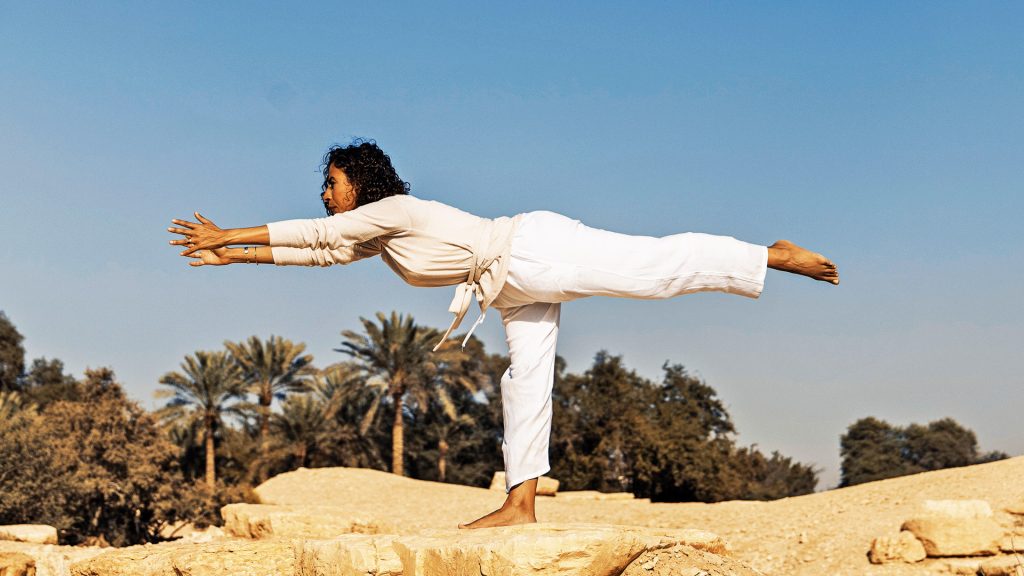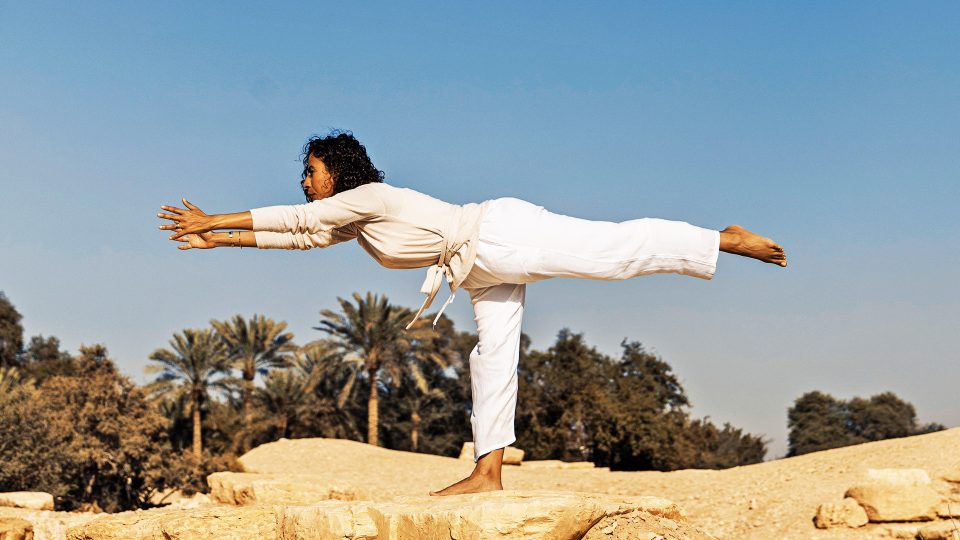Travel without the hangover is on the rise globally, especially among younger generations with 83% of Gen Z travellers saying they would consider alcohol-free travel. No-alcohol, or sober tourism, has been a growing trend since 2023 and the Middle East is perfectly placed to appeal to this demographic. Here’s why.
The drivers of sober tourism
Waking up fresh and energised means more time for exploration and meaningful experiences, rather than nursing a headache by the pool. New buzzwords like “sober curious” and “mindful drinking” reflect a cultural shift toward moderation. Research shows Gen Z and Millennials are leading this movement, favouring a more balanced lifestyle over boozy excess.

Here are some of the drivers behind sober tourism:
- Wellness and mental health: Many find that avoiding alcohol helps them feel healthier and happier on holiday. Travellers can fully recharge and return home genuinely refreshed.
- Authentic experiences: Sober tourists often seek cultural, spiritual or nature-based activities. Without late-night partying, days can start early with sunrise hikes, temple visits, or diving trips.
- “Sober Curious” movement: A rising social movement that encourages people to reassess their drinking. Gen Z and Millennials are drinking less on average than older generations, fuelling interest in alcohol-free bars, mocktails and mindful drinking lifestyles. Holidays are an extension of this mindset.
- Budget and safety: Cutting out alcohol can save money and reduce travel risks. Travellers don’t have to worry about overindulging in unfamiliar places, and they often find joy in simpler pleasures like local food, scenery, and sober nightlife alternatives like night markets and cultural shows.
The Middle East: A haven for alcohol-free tourists
The Middle East offers a built-in advantage when it comes to sober travel. Many countries in the region have predominantly alcohol-free cultures due to local customs and laws, making them ideal destinations for tourists who don’t want drinking to be part of their trip. In places where Islam is the majority religion, alcohol is often restricted or banned, without detracting from the travel experience.
Visitors find that local social life centres on tea houses, coffee rituals, food, and family activities rather than bars and clubs. Instead the emphasis is on wellness, spirituality and outdoor experiences.
For travel agents and tour organisers looking to tap into the sober tourism trend, the Middle East offers plenty of compelling options. Here are a few destinations and what they bring to the table for alcohol-free travel:
- Saudi Arabia: Completely dry by law, Saudi Arabia is opening up stunning sites like the Nabataean tombs of AlUla and the modern wonders of NEOM. Visitors can explore UNESCO heritage sites, Red Sea coral reefs, and futuristic entertainment complexes all in an environment free of alcohol. With massive investments in tourism and hospitality, Saudi is proving you don’t need a drink to have a good time, even at events like the World Cup.
- United Arab Emirates (UAE): While alcohol is available in tourist venues here, it’s easy to enjoy the UAE without it. Abu Dhabi and Sharjah highlight traditional architecture, museums and local traditions (with Sharjah entirely alcohol-free and focused on heritage). Dubai, known for all things glitz and glam, also offers desert safaris, world-class spas, shopping, and family attractions that don’t revolve around drinking. Many UAE hotels and restaurants offer mocktail menus and wellness programs to cater to health-conscious guests.
- Oman: Oman prides itself on a more low-key, authentic Arabian experience. From the green terraces of Jebel Akhdar mountains to the serene beaches of Musandam, it’s about connecting with nature and Omani culture. Nightlife is minimal, instead, evenings might mean stargazing in the desert or enjoying grilled fish by the sea. Oman’s tourism revolves around outdoor adventure, history, and calm relaxation, making it perfect for sober travellers.
- Jordan: Home to Petra and the therapeutic Dead Sea, Jordan attracts those looking for meaningful journeys. Alcohol is not a big part of the local culture, so tourists can immerse in Bedouin hospitality (try strong Arabic coffee or herbal teas) and focus on the country’s rich history and landscapes.
- Qatar: After its alcohol-light World Cup, Qatar has continued to market itself as a family-friendly and cultural destination. Doha boasts impressive museums (Islamic Art, National Museum), waterfront promenades, and desert adventures like dune bashing and camping. The nightlife is understated, giving way to activities like souq strolls, dhow boat cruises, and sporting events. Upscale hotels serve alcohol to those who want it, but Qatar’s tourism pitch is more about luxury, heritage and sports than party scenes.
A ‘dry’ World Cup and shifting attitudes

One timely example spotlighting sober tourism in the Middle East is the approach to major sporting events. Saudi Arabia is slated to host an upcoming FIFA World Cup in 2034, and the kingdom has already made it clear it plans to keep the tournament alcohol-free. This stance raised eyebrows in some football circles, given the long association between football fandom and beer. But Saudi authorities are betting that the spectacle of the sport, along with the country’s other attractions, will be enough, and they have reason for confidence.
In 2022, neighbouring Qatar also imposed strict limits on alcohol during the World Cup (famously reversing plans to sell beer in stadiums just two days before kickoff). Yet the event was a success with stadiums packed and a festive atmosphere in fan zones, proving that global audiences can enjoy world-class events without a pint in hand.
Tying in with wellness tourism
Crucially, the Middle East is increasingly positioning itself as a destination for wellness and holistic travel, not just traditional sightseeing. High-end wellness resorts and retreats are booming in the region with projects like AMAALA and AlUla being introduced. The UAE and Oman boast renowned spas and retreats such as Six Senses and Banyan Tree that offer yoga programs, detox diets and meditation amid tranquil surroundings.
For travellers and travel planners, this means the Middle East is an attractive proposition for a “dry” holiday that doesn’t feel lacking.
Sober tourism is no doubt a growing niche, reflecting a broader movement towards more mindful and intentional travel experiences. And in drawing those tourists, the Middle East just might become the leading go-to region for authentic journeys that leave you feeling better (and healthier) than ever.



